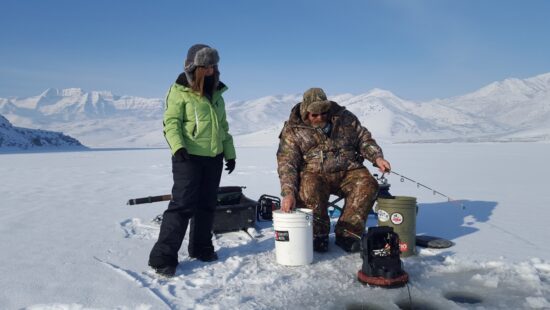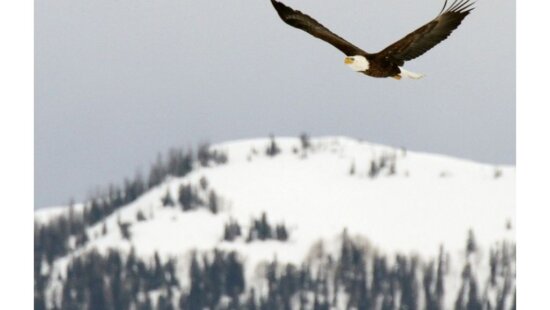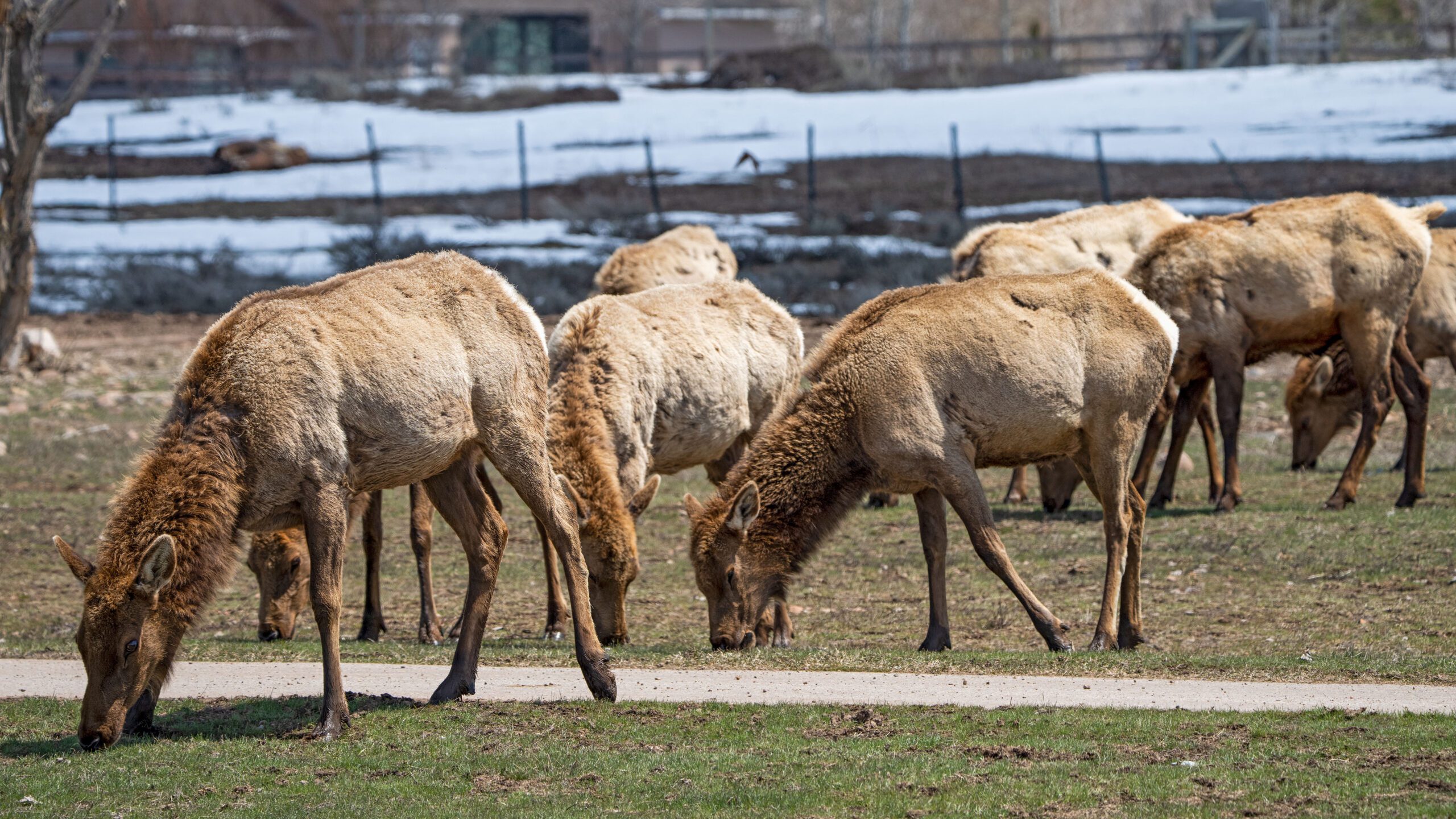Wildlife
Hunter volunteers complete nearly 1,500 wildlife projects in 2024
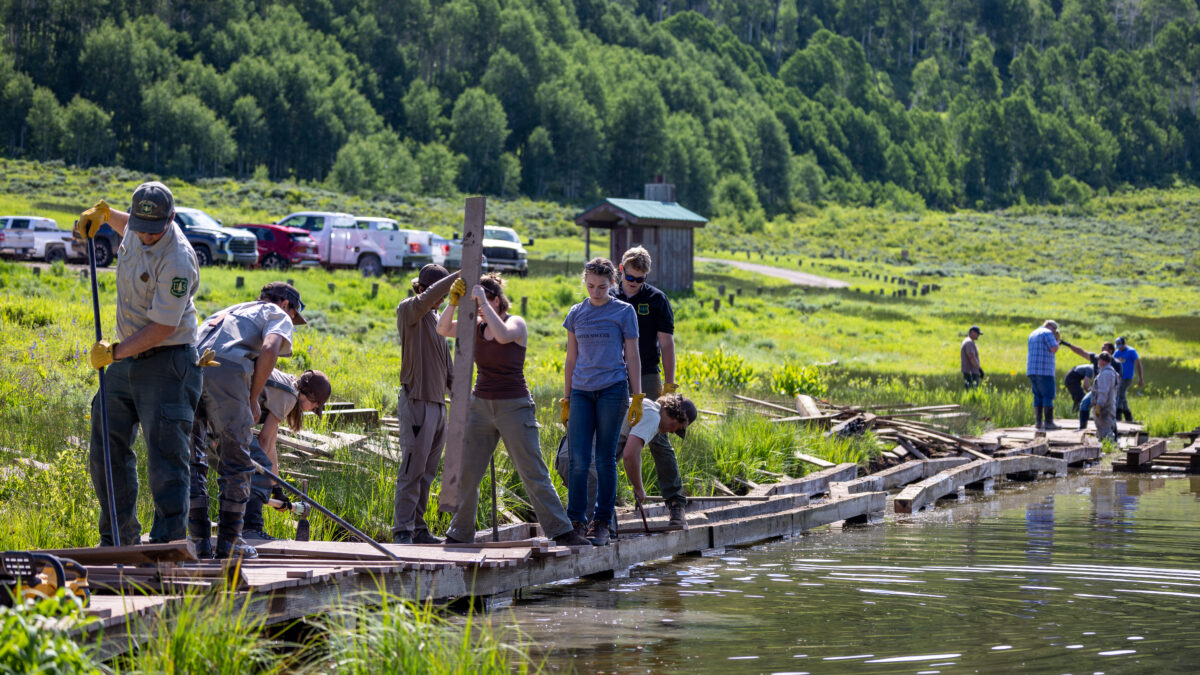
All hands were on deck for the Beaver Dam boardwalk removal. Photo: Utah Division of Wildlife Resources.
SALT LAKE CITY — In 2024, Utah’s wildlife received a major boost from volunteers from the Utah Division of Wildlife Resources (DWR) Dedicated Hunter Program. Participants in the program completed an impressive 1,473 projects, more than doubling the number of projects completed in the previous year.
The Dedicated Hunter Program is a service-based initiative that allows hunters to contribute to wildlife conservation efforts in exchange for enhanced hunting opportunities. In 2024, 8,792 hunters participated in the program, dedicating over 45,549 volunteer hours to benefit fish and wildlife. These efforts were valued at $181,600 in equipment and materials, in addition to the hands-on labor.
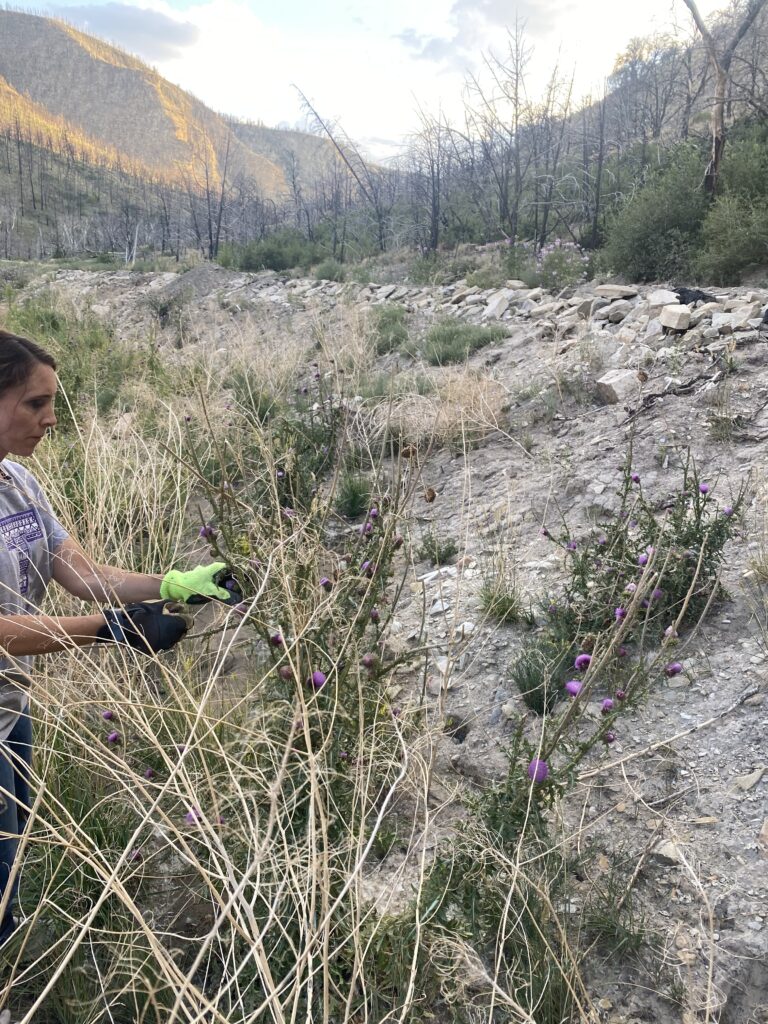
The program offers participants the chance to hunt deer over an extended season each year, provided they complete 32 hours of DWR-approved service (or pay for the hours). Hunters enroll for a three-year period, during which they can harvest up to two deer if they fulfill the service requirements.
“The Dedicated Hunter program is designed to provide opportunities for hunters and the DWR to work together as partners to improve wildlife habitat, increase hunting and angling opportunities and support all forms of wildlife recreation in Utah,” DWR Dedicated Hunter Coordinator Bryan Christensen said. “Dedicated Hunters contribute thousands of hours of service each year and accomplish an incredible amount of work that benefits wildlife, which would otherwise not happen at this scale.”
The 2024 projects spanned a wide range of efforts to improve wildlife habitat, monitor animal populations, and engage the community in conservation. Key projects included:
- Habitat restoration: Volunteers planted seeds and shrubs, removed trash from wildlife management areas, and cleared invasive weeds that threaten native species.
- Water supply improvement: Volunteers installed guzzlers, which are large devices that collect and store water from rain and snow to provide drinking water for wildlife during dry seasons.
- Wildlife monitoring: Volunteers assisted biologists with population surveys, fish gillnetting surveys, and bird banding projects to track migrations.
- Outdoor education: Participants taught hunting and fishing skills to others, promoting sustainable practices and fostering a new generation of conservationists.
- Event support: Volunteers helped host wildlife recreation events and maintained state facilities.
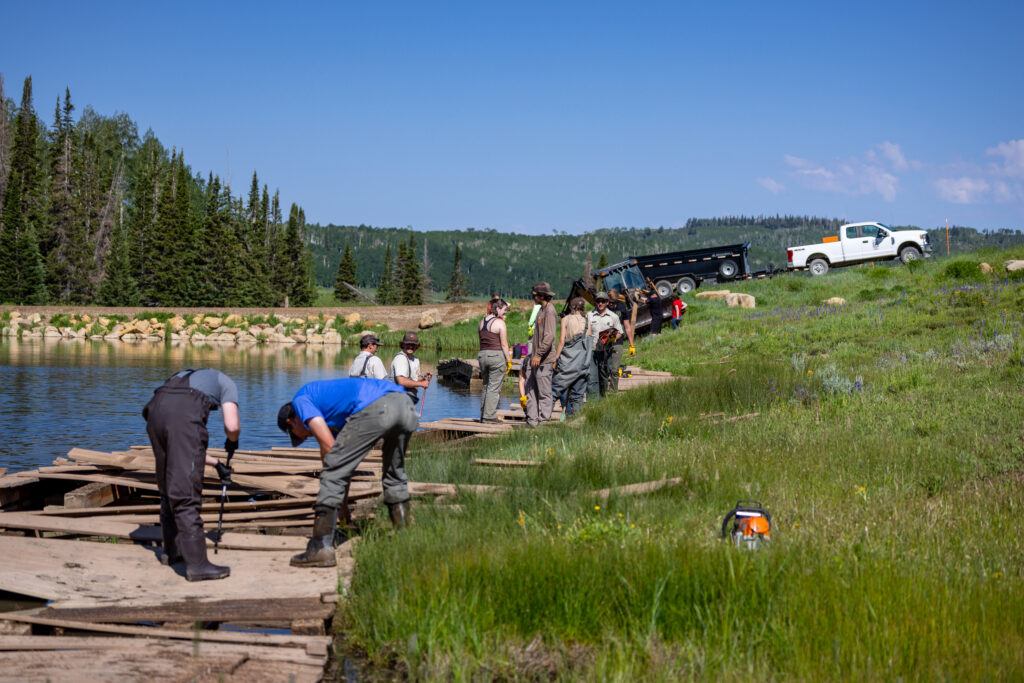
The scale and impact of these projects highlight the importance of the Dedicated Hunter Program in Utah’s broader conservation strategy. Christensen emphasized the significance of this work, stating, “We are grateful for these passionate hunters who give back to wildlife through their service in this program. These important projects truly make a difference for wildlife and conservation in Utah.”
The program not only helps preserve and restore Utah’s wildlife but also strengthens the partnership between hunters and the DWR, creating a shared sense of responsibility for protecting the state’s natural resources.
For more information about the Dedicated Hunter Program and how to participate, visit the Utah DWR website.
















